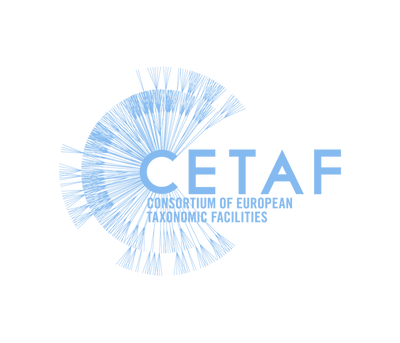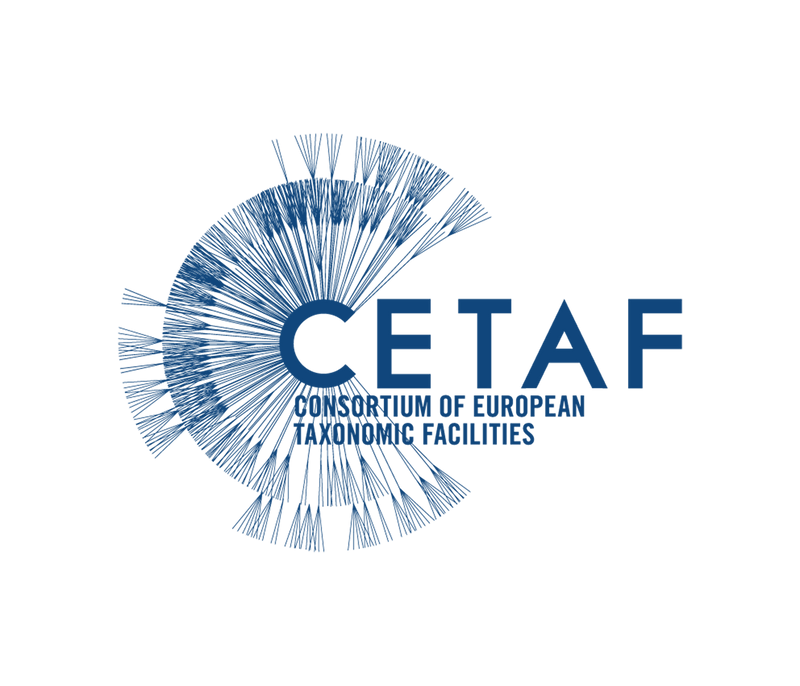
Introduction
These guidelines are a product of a collaborative effort between the CETAF Secretariat and the European Projects Advisory Group (EPAG). The purpose of the document is to raise awareness among CETAF members of the existence and functioning of the National Contact Points (NCPs) system and encourage interaction with their respective National Contact Points in the context of Horizon Europe programme (HE). Moreover, there are certain strategic benefits of timely and focused engagement with the respective NCP in relation to specific work programmes that these guidelines aim to address, due to their particular importance to the CETAF Community. The document first outlines some general information on National Contact Points and tips on how to get in touch with them. Secondly, it elaborates on the importance of strategically engaging with the contacts at a national level for the benefit of the institutions located in that country but also for the community at large. Thirdly, it provides some advice on how to establish regular engagement with NCPs. Finally, the last section informs on the current HE timeline and lists useful documents on the currently ongoing HE programme.
2. What are NCP?
2.1 The National Contact Point System
The National Contact Points (NCPs) are support structures established by Member States (MSs) and Associated Countries (ACs) and recognized by the European Commission (EC) to help participants access the different EU Programmes opportunities. Nominated and funded by the national authorities, they provide information, specialist advice and individual assistance to potential participants in the EU funding for research and innovation. Moreover, NCPs act as a bridge between the EC and companies, academia, research centres, public bodies and citizen associations.
There is one NCP for any area covered by Horizon Europe, including the 17 different NCP functions plus the NCP national coordinators network. Together, they provide support to participants across the different parts of the programme. NCPs give personalised advice and guidance on the spot and in applicants' own languages which facilitate interaction and fluent communication. The NCPs system can vary from one country to another, ranging from highly centralised to decentralised networks, and involving a wide range and variety of actors, from ministries to universities, research centres and special agencies to private consulting companies.
... What are NCP?
2.1 The National Contact Point System
The main role of the NCP is to act as a reliable, updated and objective source of information in EU-related topics. This is the core function of every NCP that can be further broken down into:
- Informing and awareness raising, to spread information about the Horizon Europe programme and related initiatives, within the specific domain that each NCP covers;
- Assisting, advising and training, to provide specialised trainings to potential participants in order to improve the national participation rate in the Programme,
- Signposting and cooperation, to make stronger ties between different potential participants and different entities providing more specific information.
2.2 Locating your NCP
As mentioned above, each area of the Horizon Europe programme is covered by one or more NCPs in each participating country (whether MS, AC or eligible third countries). The easiest way to find a specific NCP is through the EU Funding Portal’s NCP network database, which allows for searching all the registered NCPs by country or area. For the CETAF community, the most relevant NCPs will most likely be those responsible for the area ‘Food, Bioeconomy, Natural Resources, Agriculture and Environment' (Cluster 6 of the Horizon Europe programme) and “Climate, Energy and Mobility” (Cluster 5), but also the HE Missions, specifically in topics related to Restoration of oceans and waters, or Adaptation to climate change. This system will provide information on the corresponding NCP, the areas they cover, their affiliated institution and all necessary contact information. Additionally, some national NCP networks might have a dedicated web portal (or several, in case of federal systems, such as in Belgium), established by the relevant national/regional authority.
Together, the NCPs have created a network to reinforce each other, share best practices, and further support the exchange of information across countries and beyond borders. The network clearly points out different dimensions of the role of NCPs at the national level l to scale their outcomes up to the European level. It is also important that you keep a close look at its activities to benefit from the outcomes and results (from guidelines to training courses). There you can find a very complete and updated set of information:
3. Why reach out to your NCP?
Apart from the useful services that your NCP can provide in terms of information, advice and networking, it is important to underline the benefits of strategic engagement with NCPs, which are two-fold:
- To ensure that proposed taxonomy and Natural Science Collections (NSC)-linked call topics are maintained in the future drafts for upcoming HE Work Programmes; and
- To highlight specific priority topics to be included in the next iterations of Work Programmes under HE and other frameworks.
The remainder of this section focuses on these two particular aspects of NCP engagement.
3.1 Ensuring that the relevant topics are maintained
3.2 Highlighting priority topics to be included in the next Work Programme
3.1 Ensuring that the relevant topics are maintained
During the drafting phase of each iteration of the HE Work Programme, the document usually goes through several revisions, based on inputs provided from different instances as well as subsequent negotiations between the European Commission and the national authorities. For the latter, the positions are based on national research priorities, the available budgets and potentially other such factors. This means that even if topics of key importance to taxonomy and natural science collections are included in a draft of an upcoming Work Programme, this does not necessarily mean that these topics will be maintained in the final document. Therefore, it is vital that the importance of maintaining certain topics (whatever they may be) is well-flagged to our corresponding NCPs with sound arguments and backgrounds. As previously mentioned, the part of the Horizon Europe programme that should be of particular interest to the CETAF community is Cluster 6, due to its focus on environment and bio and geodiversity-related topics. It is worth mentioning that the timeline for the national discussions on Horizon Europe topics may vary from one country to another, so it is crucial that you keep in close contact with your NCPs and therefore stay aware of your specific national circumstances and timeframes.
3.2 Highlighting priority topics to be included in the next Work Programme
Once the final version of a given HE Work Programme is published, it is not possible to introduce additional topics anymore, which is why advocating for important topics in a timely manner is key. However, it is equally instrumental to maintain strategic engagement with your NCPs even after this point, as the cycle towards drafting the subsequent Work Programme may start soon after. At this stage, the European Commission will work on collating a new list of topics based on the current Strategic Plan, consultations with national governments and other stakeholders, but also on the topics prioritised in previous Work Programme(s). Once again, this is a good moment to reach out to your NCP and propose topics that cover areas of importance to the national history museums and taxonomic research. Naturally, CETAF is well-positioned to highlight such topics and ensure their prompt flagging towards the Community. In that respect, it is also important that CETAF Secretariat is duly informed on any consultations made with your NCP so that further support can be provided at European level, to leverage on national priorities and extend their impact to the entire Europe.
4. How to engage with NCP?
The main purpose of NCPs is to assist and advise (free of charge) HE stakeholders (project proposers, beneficiaries, partners, etc.) at all stages of a project, from consortium building and proposal writing to project implementation and exploitation of results. They can be contacted at any point for any support services you may require. Furthermore, most NCPs organise webinars, informative sessions and workshops in order to raise awareness and disseminate information on HE topics. Such events are good opportunities to establish relations with your NCP and also maintain regular contact. We would encourage you to subscribe to their newsletters and social media channels to stay updated, and to participate in the events even if you are already knowledgeable on HE calls, initiatives and projects, as it is a good way to keep informed on novel elements which are sometimes introduced within the new Work Programmes. Moreover, direct interaction with your NCP can be a channel through which to reach out to potential collaborators for enlarging your network of stakeholders and possibly building new proposals with.
...How to engage with NCP?
However, there is also a less visible aspect of interacting with NCPs, usually in the context of consultations between national authorities and research institutions (such as CETAF members), which are often done via NCPs. While determining national priorities for the upcoming Work Programme, NCPs will often reach out to institutions and relevant organisations in order to collect feedback and advice on proposed topics contained in the draft and relay them back to the appropriate national bodies. It is precisely through such channels that advocating for research topics of importance is likely to be most successful. Therefore, it is worthwhile knowing whether there is an office or a person in your institution who has an established line of communication with the NCP and who can help you channel your remarks and comments.
Among the members of the CETAF European Advisory Group - EPAG, there is substantial experience dealing with NCPs and transmitting knowledge about the processes they are involved in. We hope this document contributes to highlighting the importance of strategically engaging with your NCP but also to guide you on how to achieve that. In order to keep you informed about significant developments in relation to the HE programme (new work programmes, strategic documents, events and others) we aim to complement this guide with regular updates to the Community via the CETAF Secretariat. In case further elaboration is required on any aspect of this document, do not hesitate to reach out to us at the following email address: cetaf_epag_core@cetaf.simplelists.com.
5. Useful links
https://research-and-innovation.ec.europa.eu/funding/funding-opportunities/funding-programmes-and-open-calls/horizon-europe/strategic-plan_en (Information on the planning process of the next Horizon Strategic Plan)

This document has been produced by the CETAF EPAG, the European Projects Advisory Group.
EPAG Composition:
Ana Casino (CETAF GS, Brussels BE), Vanessa Demanoff (MNHN Paris FR), Eva Häffner (BGBM, Berlin DE),
Marko Lovric (CETAF GS, Brussels BE), Carole Paleco (RBINS, Brussels BE), Ni-Yan (Naturalis, Leiden NL).
Thank you for reading
feel free to contact us
For general questions:
info@cetaf.org
For advocacy and engagement
Marko Lovric
marko.lovric@cetaf.org


